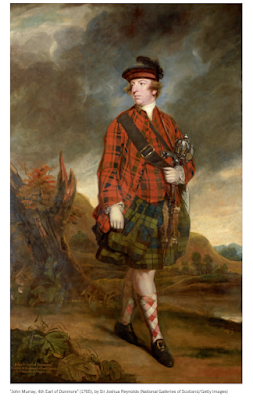Counterfactual Pots and Kettles: Woody Holton’s Disputed Claims about Lord Dunmore’s “Emancipation Proclamation” of 1775 and the American Revolution.
One of the recurring themes I’ve identified in studying the long history of counterfactual reasoning is the hypocritical tendency of writers (all too often, historians) to attack one another’s arguments as “counterfactual” – (read: illegitimate) – only then to employ counterfactual arguments to support their own claims.
The trend dates back to Antiquity – to the Greek historian Plutarch, in fact. But it has surfaced countless times in the centuries since. I document the most notable instances in my forthcoming book, but for now, I’d like to comment on the latest example of a practice that confirms the age-old truism about the “pot calling the kettle black.”
In July of 2021, University of South Carolina historian Woody Holton sparked controversy when he published a Washington Post op-ed that discussed the significance of Virginia Governor Lord Dunmore's 1775 proclamation “promising emancipation to enslaved Virginians who took up arms on the side of the Crown" and "the broader significance of the preservation of slavery as a motive for American independence.”
In response, a group of American historians (Carol Berkin, Richard D. Brown, Jane E. Calvert, Joseph J. Ellis, Jack N. Rakove, Gordon S. Wood) published a reply that criticized the essay for advancing the claim that “Whites’ fury at the British for casting their lot with enslaved people drove many to the fateful step of endorsing independence.”
The response cited a variety of reasons why Holton’s claim was exaggerated, but one of the more notable was a deterministic counterfactual – namely, the retort that “In the absence of…Dunmore’s proclamation, the colonists still would have declared their independence on July 4, 1776. Indeed, by claiming in 1774, as they did relentlessly, that they were independent of Parliament, the patriot Americans were already in rebellion. According to British officials, the colonists’ defiance of Parliament was in itself revolutionary.”
In his recent response to this critique, Holton embraced the “pot and kettle” strategy by writing that “The professors claim that white colonists were already headed toward independence in fall 1774, when these African American initiatives began. But in this they indulge in counterfactual history—assuming they know what would have happened.”
As shown by this retort, the first step in the “pot and kettle” strategy is to dismiss the claims of one’s opponent as “counterfactual,” which here is meant to be synonymous with “unverifiable,” “overly speculative,” or simply “unserious.”
The problem with Holton’s response – and the key second step in the “pot and kettle” strategy – is that he proceeds to employ counterfactual reasoning himself in the very next sentence, writing that “It seems clear to me that...had Parliament chosen to repeal all of its colonial legislation since 1762, it could have kept its American empire intact.”
Needless to say, it remains unclear why Holton’s speculative claim is “clear” to him -- apart from his own subjective vantage point – while the claims of his six critics are invalid.
What should be good for the goose (I mean, pot) should be good for the gander (I mean, kettle).
I’m not an American historian myself, but in my recently completed chapter on how American political leaders and historians used “what ifs” in the years 1776-1815 to explain and interpret the American Revolution, I found plenty of evidence to support the contentions of Holton’s critics that, in fact, most people saw the revolution as well on its way BEFORE Dunmore’s emancipation edict.
In all honesty, I’d prefer that the ongoing discussion avoided blanket condemnations (or endorsements) of counterfactual reasoning in favor of a discussion of how plausible the respective “what ifs” actually are. By now, we as historians should be above simply dismissing an argument out of hand as “counterfactual.”



Comments